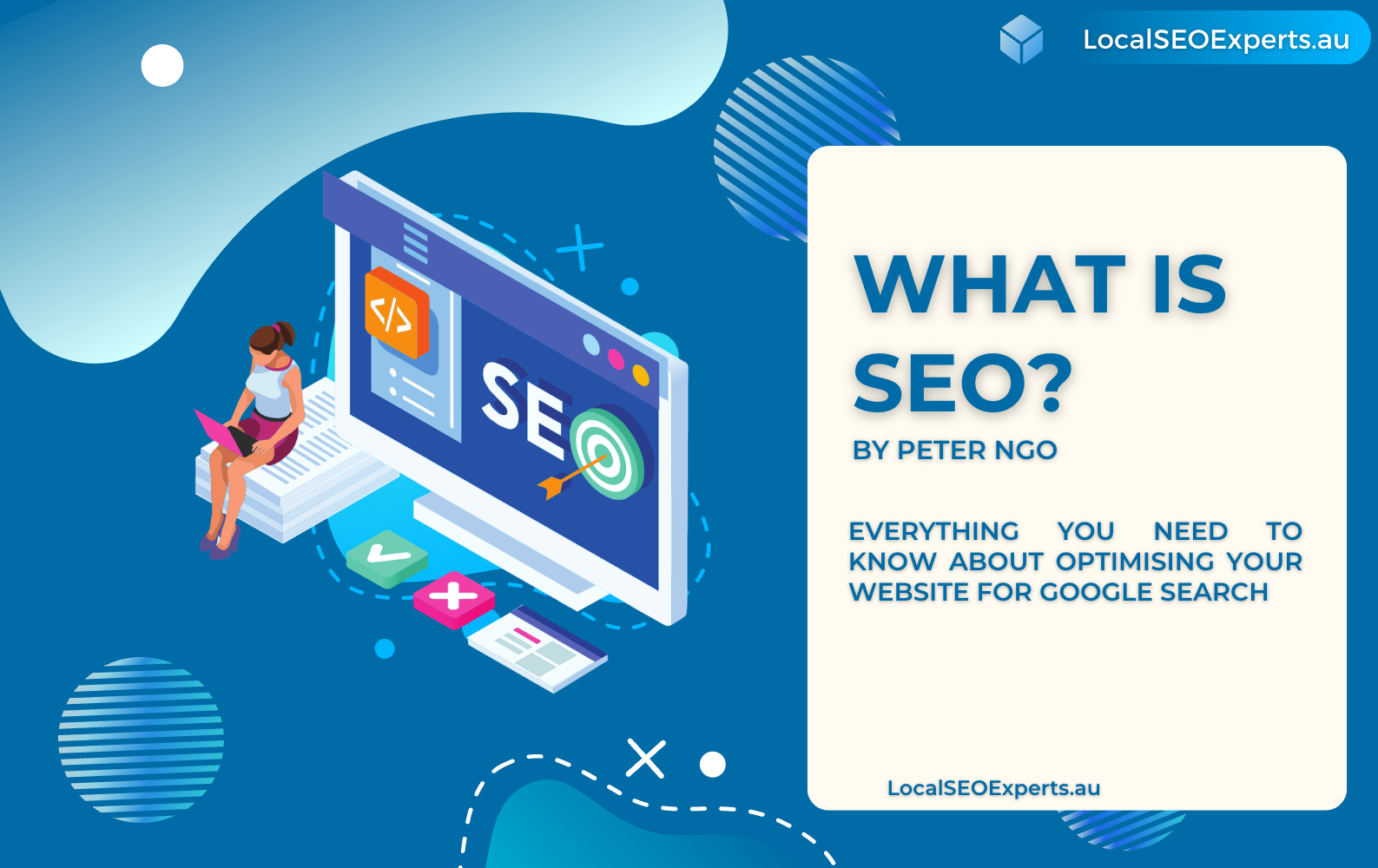Welcome to this comprehensive guide on Search Engine Optimisation (SEO). My name is Peter Ngo, and as a highly experienced SEO specialist, I am excited to share my knowledge and insights with you. In today’s increasingly digital world, understanding and implementing effective SEO strategies is crucial for businesses and website owners. In this guide, we will explore the fundamentals of SEO, its importance, and various techniques that you can apply to achieve better search engine rankings.
What is SEO?
Search Engine Optimisation (SEO) is the process of optimising a webpage or a website as a whole to improve its visibility and SERPs on search engine results pages (SERPs) for relevant keywords. The primary goal of SEO is to attract more organic (non-paid) traffic from search engines like Google, Bing, and Yahoo. By doing so, businesses can increase their online presence, generate more leads, and ultimately, drive more revenue.
How Search Engines Work
Search engines like Google crawl and index web pages to provide users with the most relevant and useful information for their search queries. They use complex algorithms and hundreds of ranking factors to determine the order in which web pages should appear in the SERPs. The three main aspects considered by search engines are relevance (how well a page matches the user’s search query), authority (how trustworthy and reliable a page is), and user experience (how easy and enjoyable it is for users to navigate and consume content on a page).
Keyword Research
Keywords play a vital role in SEO, as they are the terms and phrases users type into search engines. By incorporating relevant keywords into your website’s content, you signal to search engines what your pages are about, increasing the chances of ranking for those keywords. Effective keyword research involves using tools like Google Keyword Planner, Ahrefs, or SEMrush to identify high-volume, low-competition keywords relevant to your business. Long-tail keywords, which are longer and more specific phrases, are particularly valuable as they often have lower competition and higher conversion rates.
On-Page SEO
On-page SEO refers to the optimisation of individual web pages to improve their search engine rankings. This includes optimising meta tags, title tags, and header tags to accurately describe the content on the page. Creating high-quality, relevant content that addresses user needs and intent is crucial for on-page SEO. Additionally, image optimisation (using descriptive file names and alt tags) and ensuring that your website is mobile-friendly contribute to improved user experience and search rankings.
Off-Page SEO
Off-page SEO focuses on factors outside of your website that influence its search rankings. Backlinks, or links from other websites to your site, are a key component of off-page SEO, as they signal to search engines that your content is valuable and authoritative. Link building strategies, such as guest posting and outreach, can help you acquire high-quality backlinks. Social media and online reputation management also contribute to your website’s off-page SEO.
Technical SEO
Technical SEO involves optimising the technical aspects of your website to ensure that search engines can efficiently crawl, index, and render your content. Key elements of technical SEO include site speed, SSL (secure sockets layer) implementation, and structured data markup. Properly configuring XML sitemaps and robots.txt files also help search engines understand your website’s structure and index your pages more effectively.
Measuring SEO Success
To gauge the success of your SEO efforts, it’s essential to monitor key metrics such as organic traffic, click-through rate (CTR), and search rankings. Analytics tools like Google Analytics and Google Search Console provide valuable insights into your website’s performance and can help you identify areas for improvement. Regular monitoring and optimisation of your SEO strategy are crucial to ensure continued growth and success.
Understanding and implementing effective SEO strategies is essential for businesses and website owners in today’s digital landscape. By following the principles and techniques outlined in this guide, you can improve your website’s search engine rankings, attract more organic traffic, and ultimately, drive more revenue. Remember that SEO is an ongoing process that requires continuous monitoring and optimisation. As you continue to learn and apply SEO techniques, you will see the benefits of your efforts in the form of increased online visibility and business growth.
If you’re looking for further guidance or professional assistance in optimising your website for search engines, please feel free to reach out to me, Peter Ngo. With my extensive experience in the SEO industry, I can help you develop and implement a tailored strategy to achieve your business goals. Let’s work together to make your online presence stand out in this competitive digital world.
